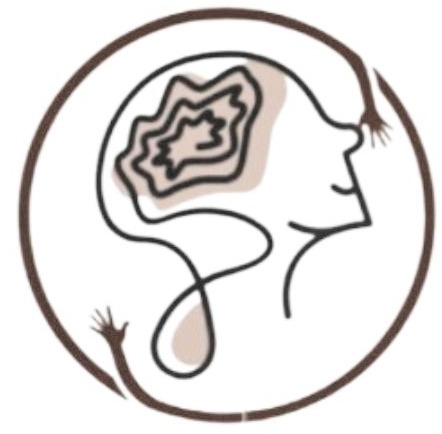
Trauma Survivors
What is Trauma?
In psychoanalysis, trauma is viewed as an overwhelming experience that disrupts an individual’s ability to cope, often leaving deep emotional and psychological scars. Unlike everyday negative events, trauma can shatter a person’s sense of security and stability, creating feelings of helplessness and disconnection. Traumatic experiences vary widely and can stem from abuse, accidents, natural disasters, or significant losses. The key difference between trauma and other negative events lies in its profound and often long-lasting impact on the psyche.
The Nature of Trauma: A Psychoanalytic Perspective
From a psychoanalytic standpoint, trauma isn’t just about the event itself—it’s about how the mind processes, or fails to process, the experience. When confronted with overwhelming events, the mind may freeze, unable to fully comprehend or integrate what has happened. This leads to a kind of psychic entanglement where traumatic memories, emotions, and sensations are stored in the unconscious in a fragmented and disorganized form. These unprocessed traumatic experiences can influence a person’s mental health, relationships, and overall well-being.
Categories of Trauma
1. Repeated Trauma
Repeated trauma occurs when an individual experiences ongoing or recurrent traumatic events. While each individual event may not be as intense as a single, catastrophic incident, the cumulative effect of repeated trauma can be just as, if not more, damaging. Over time, the repeated exposure to stressors can erode a person’s resilience, leading to chronic stress, anxiety, and other mental health issues.
Examples of Repeated Trauma:
- Domestic Violence: A person who is repeatedly subjected to verbal, emotional, or physical abuse in a relationship may experience long-term trauma.
- Bullying: A child who is consistently bullied at school might develop anxiety, depression, and low self-esteem.
- Chronic Neglect: A child who is continuously neglected by their caregivers might suffer from attachment issues and difficulty trusting others.
2. Single-Event Trauma
Single-event trauma occurs when an individual is exposed to one particularly intense and overwhelming event. This type of trauma can leave a deep and lasting impact, making the individual more vulnerable to stress and emotional disturbances in the future. The intensity of the event can cause the mind to become stuck, unable to process what happened, leading to symptoms of post-traumatic stress disorder (PTSD) and other issues.
Examples of Single-Event Trauma:
- Car Accident: A person involved in a severe car accident might develop a fear of driving or anxiety in similar situations.
- Natural Disaster: Surviving a hurricane, earthquake, or other natural disasters can lead to ongoing fears, nightmares, and hypervigilance.
- Sudden Loss: The unexpected death of a loved one can cause profound grief and trauma, leaving the individual feeling disoriented and emotionally paralyzed.
3. Intergenerational Trauma
Intergenerational trauma, also known as transgenerational trauma, refers to the transmission of trauma from one generation to the next. This type of trauma is often seen in families or communities where past generations have experienced significant trauma, such as war, genocide, slavery, or severe oppression. The effects of such trauma can be passed down through learned behaviors, emotional patterns, and even genetic predispositions, impacting the mental health and well-being of future generations.
Examples of Intergenerational Trauma:
- Survivors of War or Genocide: Children or grandchildren of Holocaust survivors may carry the weight of their ancestors’ trauma, even if they did not experience the events firsthand.
- Indigenous Communities: Many indigenous populations experience intergenerational trauma due to colonization, forced assimilation, and the loss of cultural identity.
- Families of Slavery Descendants: Descendants of enslaved individuals may struggle with the long-term psychological impacts of their ancestors’ suffering, including issues related to identity, self-worth, and systemic racism.
The Importance of Addressing Trauma
Addressing trauma is crucial because unresolved trauma can lead to significant and pervasive mental health challenges. When traumatic experiences remain unprocessed, they can manifest in various ways, including anxiety, depression, dissociation, and relational difficulties. These symptoms are the mind’s way of signaling that something unresolved is lurking beneath the surface, demanding attention. By confronting and processing these experiences, individuals can begin to heal, reclaim their sense of self, and restore a sense of safety and stability.
Trauma and Relational Psychoanalysis
In relational psychoanalysis, the therapeutic relationship is central to healing trauma. This approach recognizes that trauma often disrupts a person’s ability to trust and connect with others, leading to isolation and disconnection. The therapist-client relationship provides a safe and supportive space where traumatic experiences can be explored and processed. Through this relationship, the therapist and client work together to untangle the entangled traumatic memories and emotions, gradually bringing them into conscious awareness.
Relational psychoanalysis emphasizes the “here and now” of the therapeutic encounter while acknowledging the influence of past experiences. The therapist helps the client understand how past traumas are influencing their present thoughts, feelings, and behaviors. By exploring these dynamics within the context of a safe and trusting relationship, the client can begin to reframe their experiences, develop new coping strategies, and move toward healing.
Your Path to Healing
Healing from trauma is a journey, and relational psychoanalysis offers a compassionate and effective path forward. By exploring the roots of your trauma within the context of a safe and supportive therapeutic relationship, you can begin to make sense of your experiences, untangle the complexities of your emotional life, and move toward a place of greater peace, empowerment, and connection.
